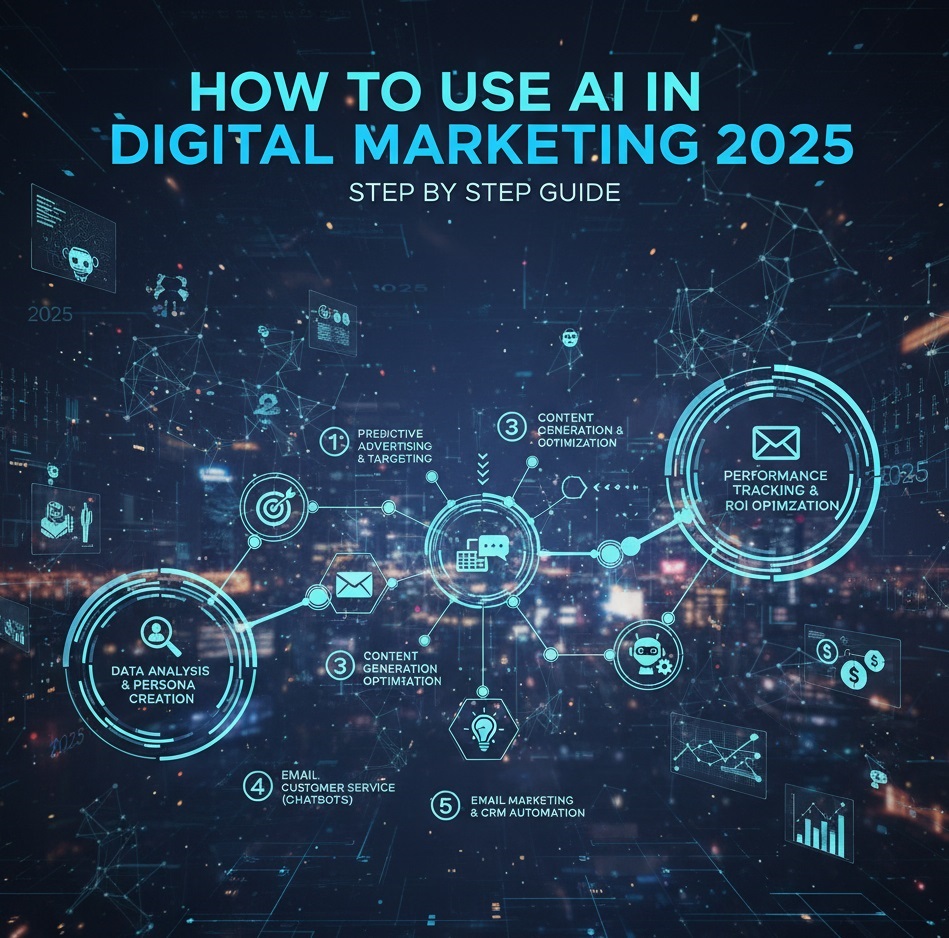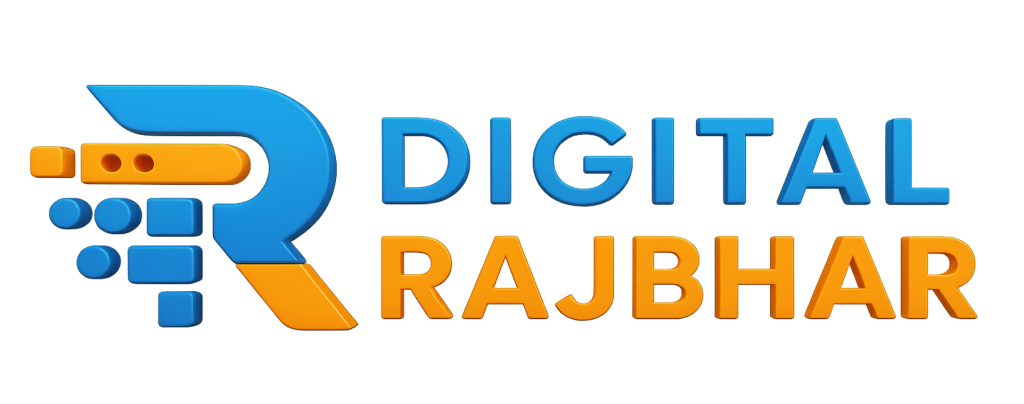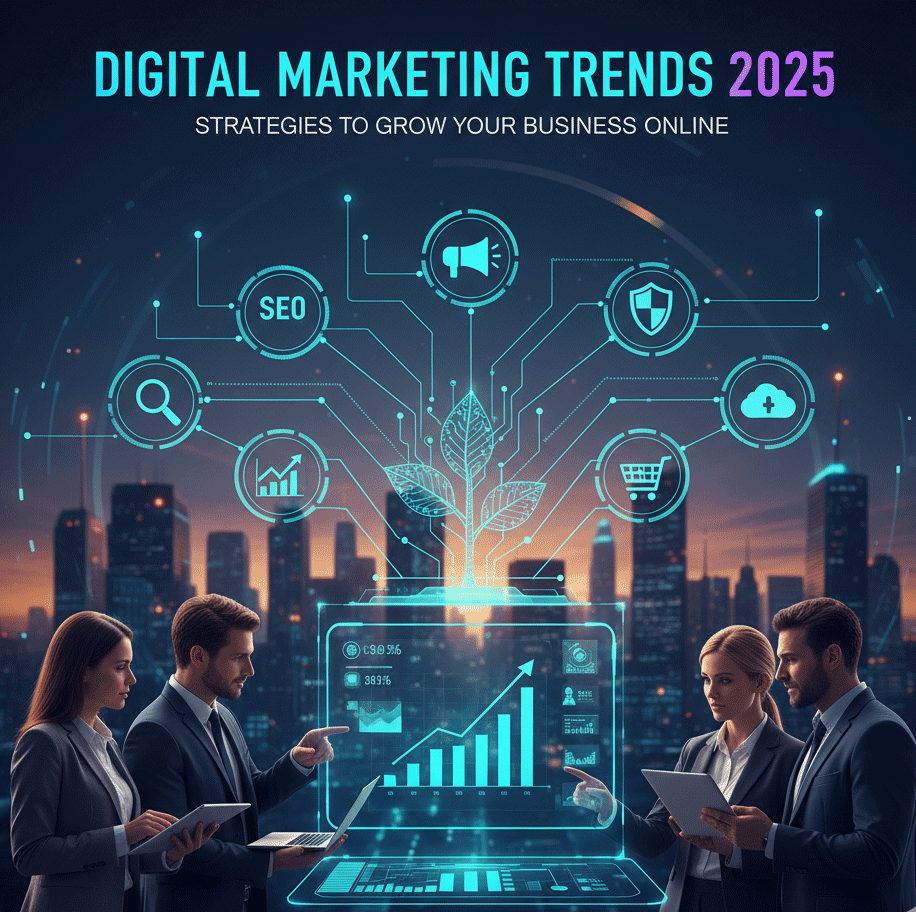
How to Use AI in Digital Marketing 2025 Step by Step
In 2025, digital marketing is entering a new era powered by artificial intelligence (AI). From personalized content recommendations to predictive analytics, AI is reshaping how businesses reach and engage their audience online. For entrepreneurs, startups, and established brands, using AI in digital marketing is no longer optional — it’s essential for growth, efficiency, and staying competitive.
In this step-by-step guide, we’ll explore how to effectively integrate AI marketing strategies into your business, highlight the latest digital marketing trends 2025, and show you how to optimize your campaigns for maximum ROI.
Step 1: Understand Why AI Matters in 2025
I isn’t just a buzzword — it’s at the heart of modern digital marketing strategies 2025. Platforms like Google, Meta, and TikTok are already using AI-driven algorithms to personalize feeds, target ads, and measure engagement.
Key reasons AI matters:
Personalization at scale – Delivering the right content to the right audience at the right time.
Data-driven decision-making – Turning massive datasets into actionable insights.
Automation – Saving time by automating repetitive marketing tasks.
Predictive analytics – Forecasting customer behavior and future trends.
In short, AI allows businesses to optimize marketing campaigns with precision that manual methods can’t achieve.
Step 2: Define Your Goals and Marketing Channels
Before diving into tools, identify what you want AI to achieve in your business. Some common goals include:
Improving SEO in 2025 with AI-driven keyword insights.
Enhancing customer experience with chatbots and virtual assistants.
Running smarter ad campaigns with automated bidding strategies.
Leveraging AI tools for social media to create and schedule content.
Building data-driven email marketing campaigns that boost conversions.
Choose your channels wisely: search engines, social media, email, or e-commerce. Each requires a different AI application.
Step 3: Use AI for Keyword Research and SEO
One of the most powerful applications of AI is SEO optimization in 2025. Search engines are becoming smarter with zero-click searches, voice queries, and E-E-A-T principles.
Here’s how AI helps with SEO:
Keyword Research – Tools like Semrush, Ahrefs, or ChatGPT-powered assistants can identify trending keywords such as “AI marketing 2025,” “digital marketing trends 2025,” and “how to use AI in digital marketing step by step.”
Content Optimization – AI tools analyze readability, keyword density, and competitor strategies.
Voice Search & Visual Search – Optimize for conversational queries like “What are the best AI marketing tools in 2025?”
💡 Pro Tip: Focus on long-tail keywords and FAQs to win featured snippets.
Step 4: Implement AI-Powered Content Creation
Content remains king, but AI makes it faster, smarter, and personalized.
Ways to use AI in content marketing:
AI copywriting tools (Jasper, Writesonic, Copy.ai) for blogs, ads, and social media captions.
Image generation tools (DALL·E, MidJourney) for marketing visuals.
Video editing automation for creating short-form video marketing in 2025.
Personalized content recommendations (like Netflix-style algorithms) for websites and apps.
Using AI ensures your brand stays consistent while cutting down time spent on manual work.
Step 5: Automate Customer Engagement with Chatbots
By 2025, chatbots and AI-driven customer support are becoming standard. Tools like Drift, Intercom, and ManyChat use natural language processing (NLP) to answer customer queries instantly.
Benefits of AI chatbots:
24/7 customer support without extra staffing costs.
Lead qualification and data collection.
Personalized shopping recommendations in e-commerce.
This aligns with digital marketing trends 2025, where instant and personalized customer interactions are expected.
Step 6: Run Smarter Ad Campaigns with AI
Paid advertising is one of the areas where AI shines. Google Ads, Meta Ads, and TikTok Ads are heavily AI-driven in 2025.
How AI improves ads:
Predictive targeting – Finding the best audience segments.
Automated bidding – Optimizing ad spend in real-time.
Creative optimization – Testing multiple variations of images, videos, and headlines.
For example, if you’re promoting shoppable video strategies 2025, AI can automatically identify the best-performing creatives and scale them for higher conversions.
Step 7: Leverage Predictive Analytics
AI’s predictive power helps businesses forecast trends and customer behavior. Tools like HubSpot, Salesforce Einstein, or Google Analytics 4 use machine learning to predict:
Which products will sell best.
Which leads are most likely to convert.
What time and channel will perform better for campaigns.
This allows you to adjust strategies before campaigns underperform, ensuring better ROI.
Step 8: Focus on Data Privacy and First-Party Data
With increasing privacy regulations in 2025, marketers need to rely on first-party data strategies. AI can help collect, organize, and analyze customer data while complying with GDPR and other laws.
Key tactics:
Collect customer emails through lead magnets.
Use AI-powered CRM tools to segment audiences.
Apply AI to track behavior while respecting consent.
This creates trust while ensuring personalization remains effective.
Step 9: Measure and Optimize Continuously
AI doesn’t just run campaigns; it measures and optimizes them. By integrating AI marketing automation tools 2025, you can:
Track KPIs automatically.
A/B test ad creatives and landing pages.
Adjust campaigns in real-time based on performance.
💡 Tip: Use AI-driven dashboards to visualize performance across channels.
Step 10: Stay Ahead of Emerging AI Trends
Digital marketing in 2025 is evolving quickly. To stay ahead:
Explore Generative AI tools for storytelling and brand building.
Use AI-powered video marketing for YouTube Shorts, TikTok, and Instagram Reels.
Invest in AI SEO optimization for zero-click and voice search.
Watch for hyper-personalized ads based on customer behavior.
The businesses that adapt quickly will dominate their markets.
Summary :
AI is no longer the future of marketing — it’s the present. By following this step-by-step guide on using AI in digital marketing 2025, businesses can create smarter campaigns, improve ROI, and stay competitive in a rapidly evolving digital landscape.
From SEO trends 2025 to AI-powered content creation, chatbots, predictive analytics, and privacy-first strategies, the opportunities are endless.
If you want to grow your business online, start small, experiment with AI tools, and gradually build a data-driven marketing ecosystem.
The earlier you adopt AI, the faster you’ll see results.



